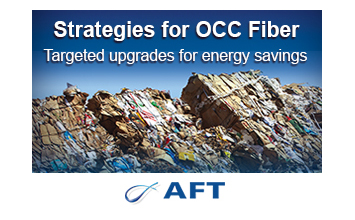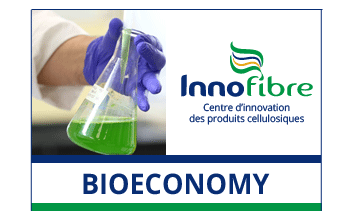The EU Commission published today its communication on 2040 climate targets. A non-binding text which starts a process to fix a new milestone for the Union’s CO2 emission levels.
The proposed target is ambitious, as called for by the scientific community. It should first and foremost be based on complex economic and physical realities that no unique scenario proposed by the Commission properly assesses.
The EU communication recognises the role of the bioeconomy in reaching ambitious 2040 climate targets, and that is not just energy that needs to be weaned from fossils, but also materials. In the document published today, a wild card ‘Life’ scenario developed in addition to the three core ones, quantifies the effects on climate of sustainable lifestyles resulting from changes in consumer preferences and circular economy measures. The pulp and paper sector’s development over past decades exemplifies how a circular bioeconomy allows to limit raw material needs and answer a growing demand from EU citizens for sustainability by offering substitutes to fossil products that are made of alternative materials from biological sources. And as carbon is stored away in wood products derived from forestry, these also displace emissions from products made of fossil materials, and reduce people’s impact on the planet.
Cepi, in line with representatives from across the forest sector calls for a careful approach to estimating the share of CO2 absorbed by forests as part of the models devised by the EU Commission. Climate change has impacted forests’ capacity to act as carbon sinks and it is also important to steer clear from a flawed approach where emissions are compensated by ‘offsets’ from nature. Instead, the EU should prioritise emission reductions in the first place. An ‘emission reduction first’ approach that would not be overlying on forests is wrongly associated with the least ambitious of the EU Commission’s proposed scenarios for 2040.
The Commission’s scenarios generally fail to fully grasp the economic challenges associated with achieving the ambitious decarbonisation targets, especially the need for predictability as a pre-condition for unleashing green investments. An example is the deployment of biogenic carbon capture and utilisation technology, which is reflected in the Industrial Carbon Management communication also published today. The price tag of the transition will, in any case, be high, with the EU Commission estimating that €1.5 trillion a year needs to be deployed. To reach such levels, the first order of business is to keep ‘made in Europe’ industries investing locally, via an industrial policy that would double as a comprehensive investment friendly framework. The EU Commission needs to recognise that the success of the European economy’s decarbonisation hinges on the global competitiveness of its manufacturing industries.
In any scenario, the EU energy system needs to be decarbonised to a large extent by 2040, as ambitious targets would require an increase in the supply of affordable fossil-free energy. The pulp and paper sector is already leading the way amongst energy-intensive industries. Its specificity, as it requires lower range levels of heat, makes it an ideal candidate for the early deployment of a large array of existing renewable energy technologies that are often not yet widely used in industrial settings.
Quote by Jori Ringman, Director General Cepi, Confederation of European Paper Industries
“Over the past decade, the EU – has demonstrated leadership on climate policy, setting a clear direction of travel. The Commission should now prioritise incentivising companies to choose Europe as their destination for investments in decarbonisation efforts.”
“Next steps should include an in-depth assessment, not only of the respective impacts of the different scenarios towards climate neutrality, but also about their feasibility. Input from an industry which systemic role places at the crossroads of sustainable forest management, energy decarbonisation, circularity and sustainable consumption should not be neglected.”
About Cepi :
Cepi is the European association representing the paper industry. We offer a wide range of renewable and recyclable wood-based fibre solutions to EU citizens: from packaging to textile, hygiene and tissue products, printing and graphic papers as well as speciality papers, but also bio-chemicals for food and pharmaceuticals, bio-composites and bioenergy. We are a responsible industry: 85% of our raw materials are sourced from within the European Union, 92% of the water we use is returned in good condition to the environment. We are the world champion in recycling at the rate of 71.4%. At the forefront of the decarbonisation and industrial transformation of our economy, we embrace digitalisation and bring 25 billion value addition to the European economy and €5 billion investments annually. Through its 19 national associations, Cepi gathers 500 companies operating 895 mills across Europe and directly employing more than 180,000 people.
More information about our sustainability performance here.
Source: Cepi













